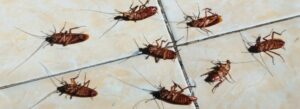Trusted Advice from Innovation Pest Control
Keeping your home in Kent safe, clean, and comfortable means staying one step ahead of pests. Whether it’s ants in the kitchen, wasps in the loft, or termites quietly damaging timber structures, household pests aren’t just an annoyance—they’re a threat to your property and wellbeing. You need to consider what pest control solutions you have available to you.
At Innovation Pest Control, we’ve helped families across Kent—Ashford, Maidstone, Canterbury, Folkestone, and beyond—take back control of their homes. This comprehensive guide breaks down the process of pest control from start to finish. Backed by real-world expertise, environmental awareness, and proven local experience, this isn’t theory. It’s what works.
Step 1: Spot the Signs – Identifying Pests in Your Kent Home
Most infestations start quietly. Spotting the early signs can make all the difference. Look out for:
- Unusual insect activity (particularly near food, skirting boards, or bathrooms)
- Droppings or shed skin
- Gnaw marks, damage to wood, or nesting materials
- Buzzing or scratching sounds in walls or lofts
In Kent, the most common household invaders include ants, termites, centipedes, millipedes, cockroaches, rodents, and wasps. Each behaves differently, so getting the ID right is the first step toward effective control.
💡 Want a professional survey? Request an inspection today.
Step 2: Prevent the Problem Before It Grows
At Innovation Pest Control, we believe the best pest control is prevention. Here’s how Kent homeowners can pest-proof their property:
Seal the Gaps
- Use silicone sealant around doors, windows, pipe entry points, and foundations
- Fit bristle strips on external doors to block crawling pests
Remove Food & Water Sources
- Store food in sealed containers
- Keep worktops clean and dry
- Empty bins regularly with tight-fitting lids
Tidy Outdoor Spaces
- Trim vegetation away from the home
- Remove compost heaps, logs, and leaf piles
- Install gravel or dry zones around your foundations to deter moisture-seeking pests
Check Deliveries & Second-Hand Items
Pests can hitch a ride inside boxes, firewood, or furniture. Always inspect new items thoroughly before bringing them inside.
Step 3: Natural Pest Control That Works in Kent
Not every pest problem needs chemicals. Here are safe, natural ways to keep pests out:
- Diatomaceous Earth: A natural powder that kills crawling insects by damaging their exoskeleton
- Essential Oils: Peppermint, lavender, and eucalyptus repel insects—mix with water to create natural sprays
- Sticky traps and baits: Great for monitoring and reducing insect activity
- Biological controls: Introduce natural predators in your garden, like ladybirds for aphids
These methods are ideal for families, pet owners, and anyone looking to reduce chemical use around the home.
Step 4: Chemical Pest Control—Used Safely and Effectively
In more severe cases, chemical treatments may be needed. Our Kent team is trained in the safe, targeted use of:
- Residual insecticides (e.g. for termites or ants)
- Insect Growth Regulators (IGRs) to break breeding cycles
- Aerosol foggers for lofts and hard-to-reach areas
- Professional-grade baits for rodents and cockroaches
⚠️ Always read labels, wear protective gear, and ventilate treated spaces. Or better yet, let our certified technicians handle it for you with zero hassle.
Step 5: Know When to Call the Experts
Some infestations require more than sprays and traps. If you’ve noticed:
- Pests returning after treatment
- Large nests or multiple entry points
- Structural damage from termites or rats
- Allergy symptoms or foul odours
…it’s time to call in Innovation Pest Control. Our Kent-based experts offer:
✅ Free advice and tailored quotes ✅ Rapid-response treatments ✅ Pet- and child-safe options ✅ Follow-up care and preventative planning
Book your professional pest treatment now →
Step 6: Keep Your Home Pest-Free Year-Round
Once the pests are gone, it’s all about keeping them out. Here’s what we recommend:
Monthly Checks
Routine monthly inspections are one of the most effective and low-cost ways to keep your Kent home pest-free all year round. By identifying the early signs of infestation, you can act quickly and avoid more expensive interventions later.
Start by checking the areas most vulnerable to pest activity: lofts, under sinks, garages, and garden sheds. These spots often provide the warmth, moisture, or darkness that many pests seek out. Keep an eye out for droppings, damage to packaging, nesting materials, gnaw marks, or live insects.
Make a checklist to review each month. Include:
- Skirting boards and baseboards
- Inside cupboards and pantries
- External vents and pipe inlets
- Garden structures, especially wood piles or compost bins
- Interior corners where dust or debris collects
It’s also smart to rotate your inspections by season. In the warmer months, focus more on flying insects and garden pests. In winter, shift your attention to indoor areas where rodents or spiders may shelter.
Document what you find—even if there’s no pest activity. This habit not only keeps you alert to small changes but helps professionals like our team at Innovation Pest Control understand your property’s history if an issue arises.
For added protection, we also offer monthly or quarterly monitoring plans across Kent, giving you peace of mind with expert oversight.
Consistent Cleaning
Maintaining a clean home isn’t just about hygiene—it’s one of the most important defences against pest infestations. Many of Kent’s most common household pests, including ants, cockroaches, and rodents, are drawn to crumbs, spills, and food waste. That’s why daily tidying, especially in kitchens, dining areas, and utility rooms, plays a vital role in pest prevention.
Start by wiping down surfaces after meals, vacuuming floors regularly, and emptying indoor bins before they overflow. Ensure food is stored in airtight containers and avoid leaving pet food or dirty dishes out overnight. Pay particular attention to hidden or overlooked areas such as behind appliances, under fridges, and inside cupboard corners—pests thrive where crumbs accumulate unnoticed.
Bathroom cleanliness is also important. Damp towels, stagnant water, and soap scum can attract silverfish, ants, and drain flies. A dry, ventilated space is far less hospitable to these types of pests.
Even light but regular cleaning can dramatically reduce the availability of food and moisture pests depend on to survive. This small daily habit is a big part of staying pest-free—and works best when combined with monthly checks and seasonal adjustments.
Adapt by Season
Pest behaviour changes throughout the year, and so should your approach to keeping them out. Kent’s changing weather brings different pest challenges as the seasons shift.
Spring & Summer: Warmer months bring an increase in flying insects like wasps, flies, and mosquitoes. Ants become more active, often invading homes in search of food. Check windows for gaps, install insect screens, and remove standing water in gardens or gutters where mosquitoes might breed.
Autumn & Winter: As temperatures drop, rodents, spiders, and other pests look for warmth indoors. Inspect your property for tiny gaps around pipes, door frames, and rooflines. Seal cracks, block unused vents, and store firewood away from the house to reduce the chance of indoor nesting.
By staying one step ahead of seasonal changes, Kent homeowners can reduce pest pressure year-round. If you’re unsure what to look out for in each season, our team offers free advice and seasonal pest-proofing support.
Educate the Household
Pest control isn’t a solo mission—it works best when everyone in the home is involved. Educating household members about small but important habits can make a big difference in keeping your Kent home pest-free.
Encourage everyone to:
- Keep doors shut to stop pests like flies and mice from sneaking in
- Report pest sightings—whether it’s a trail of ants or a spider in the bath, every detail helps
- Clean up after themselves, especially in shared areas like kitchens, bathrooms, and bedrooms
- Avoid clutter, which can create nesting or hiding spots for pests like silverfish and cockroaches
Even young children can help by keeping food in lunchboxes or tidying away toys that may be harbouring crumbs. It’s not about creating a sterile environment—it’s about building everyday awareness. When everyone plays a part, pest control becomes a lot more effective and sustainable.
Log It
Creating a simple pest control log can help you identify patterns and respond faster to issues. Whether you use a notebook, spreadsheet, or a notes app on your phone, tracking pest activity makes your response more strategic.
What to include:
- Dates and locations of sightings
- Photos of pests or evidence (droppings, gnaw marks, nests)
- What actions you took (cleaning, sealing gaps, setting traps)
- Results and follow-ups
Over time, your log becomes a powerful tool—especially if you ever need to bring in professional support. It gives our Innovation Pest Control team a clear picture of what’s happening and helps us provide faster, more targeted treatment.
Logs are particularly useful for recurring problems or seasonal pests like ants, cluster flies, or rodents. The sooner you spot a pattern, the sooner we can break it.
Why Kent Homeowners Trust Innovation Pest Control
We’re not a national chain. We’re your neighbours. Based right here in Kent, we understand the local environment, pest behaviours, and what works best in our region.
✅ Local Knowledge – We know the unique pest risks across Ashford, Maidstone, Folkestone, and beyond ✅ Fast Response – Emergency call-outs available across Kent ✅ Eco-Friendly Focus – We favour environmentally responsible methods wherever possible ✅ Customer Care – 5-star rated for our friendly, honest service
Final Thoughts
A pest-free home isn’t just about comfort—it’s about protecting your health, your property, and your peace of mind. Whether you’re dealing with buzzing wasps in Whitstable, termites slowly damaging your foundations in Tunbridge Wells, or a trail of ants marching through your Ashford kitchen, the reality is the same: pests disrupt daily life, and they’re not going away on their own.
At Innovation Pest Control, we understand that no two homes—or pest problems—are alike. That’s why we focus on tailored, locally informed solutions designed specifically for Kent residents. We don’t believe in a “spray and walk away” approach. We believe in education, prevention, and sustainable, long-term results.
Pest control is most effective when approached holistically. That means combining good habits, seasonal awareness, natural and chemical tools, and—when needed—professional expertise. It’s about more than extermination. It’s about creating an environment that pests don’t want to return to.
A clean kitchen, sealed entry points, a log of sightings, and regular checks may seem like small steps, but together, they build a strong defence. And when you’re backed by a reliable local partner like Innovation Pest Control, you don’t have to face it alone.
Too often, homeowners wait until a minor issue turns into a full-blown infestation before taking action. By then, pests may have already caused structural damage, contaminated food supplies, or compromised your sense of safety in your own home. That’s why early intervention is key.
We encourage all Kent homeowners to take a proactive stance. Whether you’re just noticing the first signs of pests or simply want to reduce your risk in future, there’s a solution that fits. You might start with a few preventative measures, or you might benefit from a full inspection and a tailored plan. Either way, taking action today means fewer problems tomorrow.
And let’s not forget the emotional toll pests can bring—especially when there are children or pets in the home. The stress of hearing scratching in the walls, dealing with stings in the garden, or finding droppings in your cupboards can make anyone feel overwhelmed. That’s why our team focuses not just on pest removal, but on giving you back a sense of calm and control.
Innovation Pest Control has proudly served the Kent community for years. We know the local pest behaviours, seasonal threats, and property types—from period homes in Canterbury to new builds in Maidstone. We understand the risks that come with damp cellars, old timber frames, and unsealed extensions. More importantly, we know how to treat them with care and precision.
But we don’t stop at treatment. We help you understand the why behind each pest issue, so you can take steps to prevent it happening again. Whether it’s pointing out a leaking pipe, suggesting a change in waste storage, or recommending a natural deterrent, we aim to leave every customer better protected and better informed.
Our commitment is to combine fast action with long-term thinking. That’s why we offer everything from one-off treatments to ongoing monitoring plans. Because real pest control isn’t about a quick fix. It’s about lasting peace of mind.
So, if you’ve been searching for the right solution, know this: You’re not alone. Thousands of homeowners across Kent have trusted us to protect their homes, and we’re here to do the same for you.
Let’s make pests a thing of the past. Let’s make your home healthier, safer, and happier. Let’s start today.
📞 Book your local inspection, or explore our service plans at innovationpestcontrol.co.uk. 🛡️ Serving Ashford, Maidstone, Canterbury, Whitstable, Tunbridge Wells, and across Kent.
Expert Answers from Innovation Pest Control
What are the most effective pest control solutions for homes?
Effective pest control begins with identifying the pest species and tailoring the solution accordingly. The most successful methods include sealing entry points, maintaining cleanliness, using professional-grade baits and traps, and, when necessary, targeted chemical treatments. At Innovation Pest Control, we also recommend Integrated Pest Management (IPM) to reduce reliance on chemicals and ensure long-term results.
How do I choose a pest control solution for my garden?
Garden pest control depends on what you’re trying to manage. For aphids and caterpillars, consider natural predators like ladybirds or organic sprays such as neem oil. For slugs and snails, copper barriers and diatomaceous earth work well. Always choose solutions that won’t harm beneficial insects or contaminate your soil.
What are organic pest control solutions for farming or gardens?
Organic solutions include:
- Neem oil or pyrethrin sprays
- Companion planting (e.g., basil to deter flies)
- Crop rotation
- Introduction of predatory insects like lacewings
- Physical barriers like row covers These are especially suitable for those seeking to protect pollinators and maintain soil health.
Are there any DIY pest control solutions available?
Yes. DIY options include vinegar and lemon spray for ants, boric acid traps for cockroaches, and essential oil blends for general insect deterrence. These are best used for mild infestations or as a preventative measure. For more serious issues, professional help is advised.
What are the best pest control solutions for rodents?
For rodents like rats and mice, the best solutions are:
- Snap traps and bait boxes
- Sealing small openings in the structure
- Keeping food sealed and waste managed
- Professional rodenticide deployment (only when necessary) Our Kent team uses tamper-proof bait stations that are safe for households with pets and children.
Can I use natural pest control solutions around my pets?
Yes, but with caution. Use pet-safe products like diatomaceous earth and essential oils such as lavender or cedarwood. Always ensure treatments are applied away from pet feeding areas and consult with a professional before using any new method around animals.
Are there pest control solutions for specific pests like cockroaches?
Yes. For cockroaches, targeted gel baits, IGRs (insect growth regulators), and residual sprays are most effective. Innovation Pest Control uses safe, localised treatments that eliminate nests and prevent future breeding.
What are the most common pest control solutions used by professionals?
Professional pest controllers use:
- Insecticide sprays
- Gel baits
- Fumigation or fogging for heavy infestations
- Rodenticide baiting systems
- IPM strategies combining all of the above for long-term results
How do I evaluate the effectiveness of a pest control solution?
Look for reduced sightings, fewer droppings or signs of activity, and disruption of breeding. A good pest control provider will also follow up with monitoring and provide documentation to confirm progress.
What are the safest pest control solutions for children and pets?
The safest include:
- Essential oil-based sprays (vet-approved)
- Physical traps and barriers
- Professional treatments using low-toxicity or natural products Our team always discusses safety precautions before and after treatment.
Can I use a single pest control solution for multiple pests?
Some general deterrents work across several species (e.g., peppermint oil spray, diatomaceous earth), but targeted control is usually more effective. A customised approach always yields better results.
What are the benefits of using eco-friendly pest control solutions?
Eco-friendly solutions:
- Reduce environmental impact
- Preserve beneficial insects like bees
- Are safer for pets and children
- Help prevent resistance in pests due to overuse of chemicals
How do I apply pest control solutions to my lawn?
Use granular treatments for ants or grubs and natural sprays for insects. Mow and water appropriately, and avoid chemical overuse to maintain lawn health. Our team offers lawn-safe treatments on request.
What are the advantages of using professional pest control solutions?
- Faster, more thorough results
- Safer chemical handling
- Guaranteed services
- Advice on prevention and maintenance We provide detailed inspection reports and custom treatment plans tailored to your Kent property.
Are there any pest control solutions that are pet-friendly?
Yes. Many natural repellents and even some commercial options are non-toxic to pets. We only use pet-safe treatments when requested and ensure full safety briefings after every visit.
What are the most cost-effective pest control solutions available?
Prevention is the most cost-effective. Sealing gaps, good hygiene, and seasonal inspections reduce long-term costs. DIY may work for small issues, but professional solutions are more efficient for long-term savings.
How do I know which pest control solution to use for my issue?
Start with identifying the pest. If unsure, request a free inspection from a local expert. Innovation Pest Control offers tailored plans based on species, property type, and severity.
Are there pest control solutions that can prevent future infestations?
Yes. Preventative treatments (residual sprays, bait stations), sealing access points, and removing food sources are proven to stop pests returning. Ask us about our pest monitoring packages.
What are the differences between various pest control solutions?
- Natural: Eco-safe, slower acting
- Chemical: Fast, may need safety precautions
- Biological: Long-term, but limited to certain pests
- Physical: Barriers and traps Choosing depends on the pest, environment, and risk level.
Can I use a combination of pest control solutions for better results?
Absolutely. Combining natural, chemical, and preventative methods often delivers the most reliable and lasting results. This is the basis of our integrated pest management approach.







